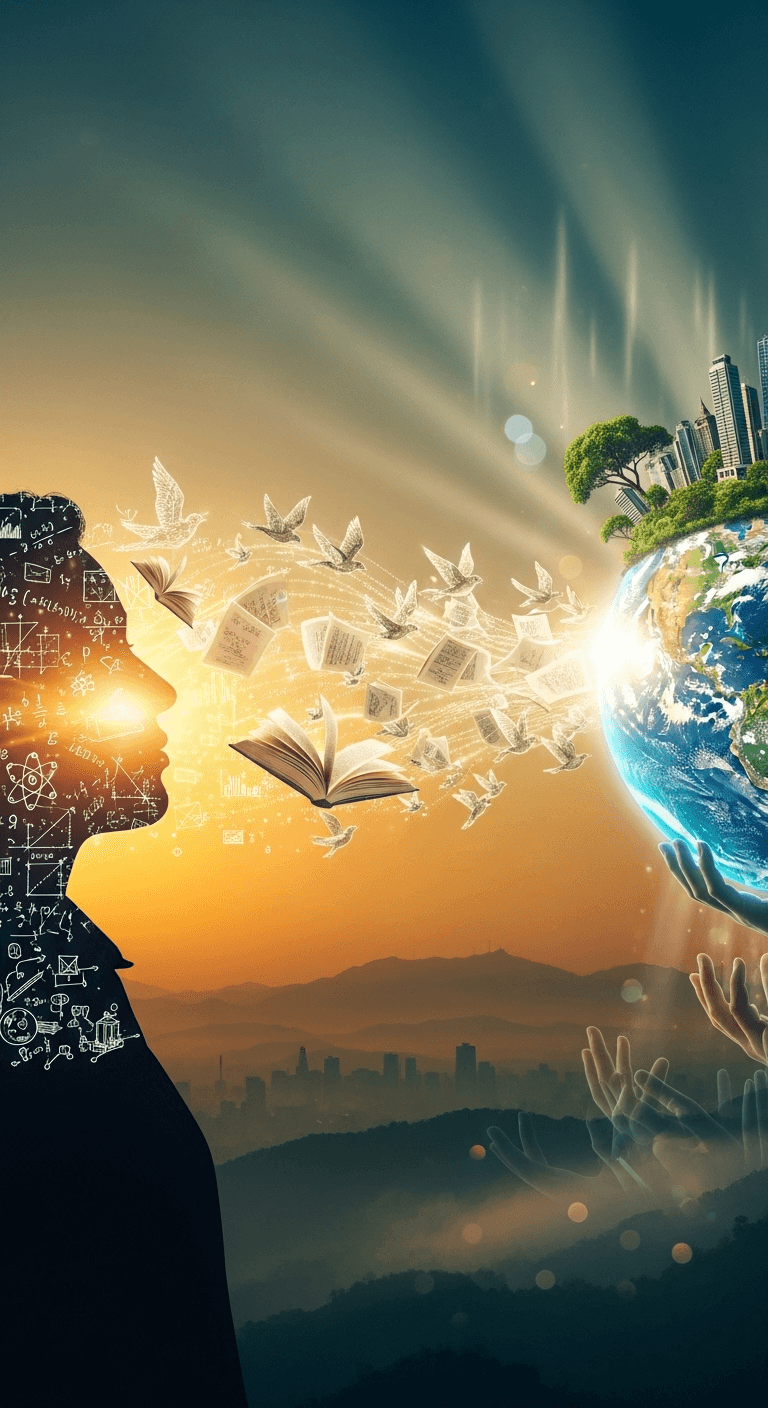From Learning to Liberation: People Transform Worlds

Education does not change the world. Education changes people. People change the world. — Paulo Freire
Education as Catalyst, Not Final Cause
At the outset, Paulo Freire’s claim redirects attention from institutions to human beings: curricula do not move history, transformed people do. Education, then, is a catalyst that awakens agency, equips language for naming reality, and invites responsibility for altering it. In Freire’s terms, schooling matters only insofar as it cultivates subjects—people who act—rather than objects who are acted upon. This framing resists both fatalism and technocratic optimism: neither despair nor better test scores alone will change the world, but critically awakened persons, working together, can.
Conscientization and the Practice of Praxis
Building on this, Freire’s Pedagogy of the Oppressed (1970) introduces conscientization: the deepened awareness of social, political, and economic contradictions. Crucially, awareness is paired with praxis—the reflective cycle of action and reflection. Insight without action drifts into abstraction, while action without reflection slides into activism without learning. Freire insists that change emerges when learners interrogate lived realities—wages, housing, safety—and then test new possibilities in collective practice. In this spiral, education changes people, and those people, through organized praxis, change the structures around them.
From Banking to Dialogic Learning
Consequently, the method matters. Freire contrasts the “banking model,” where teachers deposit information into passive students, with dialogic, problem-posing education. In dialogic classrooms, teachers and learners co-investigate real problems—landlord-tenant disputes, access to clean water, voting procedures—so that literacy and numeracy become tools for civic agency. Echoing this approach, bell hooks’s Teaching to Transgress (1994) argues that education should be a practice of freedom. The shift is subtle yet decisive: rather than producing compliance, dialogue produces participation, which prepares people to transform their communities.
Historical Illustrations of People in Motion
This pattern appears repeatedly in lived history. In Angicos, Brazil (1963), Freire’s team helped 300 sugarcane workers achieve literacy in 45 days; many soon organized around labor rights. The Cuban Literacy Campaign (1961) mobilized roughly 250,000 volunteer brigadistas, who did not just teach letters—they returned politicized citizens, newly confident in public life. In the U.S. South, the Highlander Folk School’s workshops shaped civil rights leaders; Rosa Parks attended months before her 1955 act of refusal, an act rooted in learned courage. Likewise, South African students’ rising political literacy fueled the 1976 Soweto uprising. In each case, education prepared people—and people moved history.
Guarding Against Education as Domestication
However, the same tools can domesticate rather than liberate. The Bantu Education Act (1953) in apartheid South Africa engineered schooling for subordination, revealing how curricula can entrench hierarchy. Sociologists Bowles and Gintis, in Schooling in Capitalist America (1976), described a “hidden curriculum” that reproduces social orders through obedience and credentialism. Freire warns that without dialogue and critical inquiry, schooling trains compliance more than conscience. Recognizing this risk clarifies the original claim: education changes people in one direction or another; only critically engaged people reliably change the world toward justice.
Contemporary Praxis: Digital, Civic, and Climate Literacies
Extending this insight today, critical media and data literacies help people navigate algorithmic feeds, resist misinformation, and organize responsibly. Participatory budgeting, community science, and mutual-aid networks translate learning into shared action; here Amartya Sen’s Development as Freedom (1999) aligns with Freire, treating capabilities as the bridge from education to democratic agency. Thus, when classrooms partner with neighborhoods—auditing local air quality, testifying at city council, designing climate adaptations—education becomes lived praxis. The world does not change because schools exist; it changes because educated people act together, reflect, and act again.